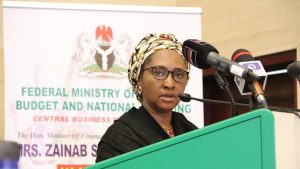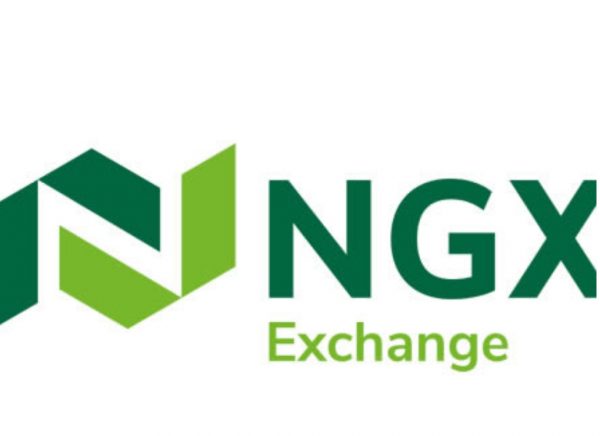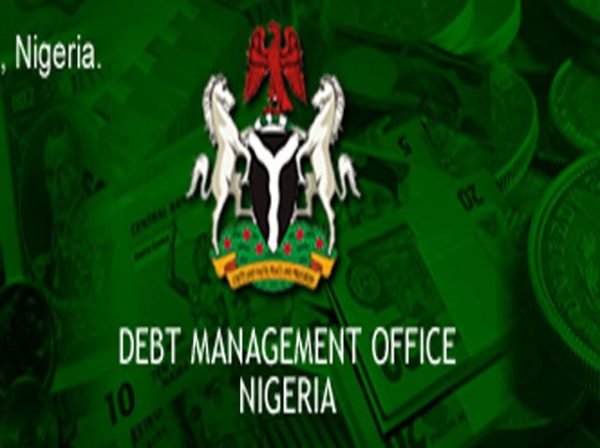Experts query 2019 capital budget release
• Allocation Too Meagre To Make A Mark
• Say Entire Budget Incapable Of Powering Development
Despite the Federal Government’s claim to have released more than 56 per cent of the approved expenditure for capital projects in the 2019 Appropriation, some development economists and experts insist that the said release has not impacted the ailing economy.
The Minister of Finance, Budget and National Planning, Zainab Ahmed, while briefing State House correspondents at the end of the last Federal Executive Council (FEC), in Abuja, said about N1.2t (56.1 per cent) out of the total N2.14 trillion (excluding the capital component of statutory transfers) capital budget had been released to various ministries, departments, and agencies.
“So far … we have released up to N1.2t in capital expenditure, which is a 50 per cent performance of the capital for the whole year 2019. The 2019 budget is also a six-month budget. So we have achieved a ‘fifth per cent’ capital release for 50 per cent performance of the 2019 budget.
“We have also been able to release all that is required for personnel. So, personnel expenditure is on course, debt service is also on course,” she said.
Commenting on the presentation, the Lead Consultant, Centre for Social Justice (CSJ) Eze Onyekpere, said it was difficult to come to terms with the fact that such amount has so far been released to MDAS because there was nothing on ground to point to.
“The question we are asking is, where are the projects that were executed with the amount released? Unfortunately too, the N1.21t capital votes said to have been released cannot impact very well on the economy, and mind you, releases are not the same thing as cash backing and vice versa.”
For professor of political economy, Pat Utomi, from whatever prism one looks at it, the country’s budget is unlikely and incapable of engendering development because “it is too small for the kind of economy that we should be driving. What we need is good behaviour by public officials so that private capital can come in.
“Do you know what percentage of the Gross Domestic Products (GDP) this budget is? It is less than six per cent of what is required to run the economy. So, there is an over-emphasis on the budget as we know it today, partly because of the earn and spend approach to governance. What we need is to take a cue from the budget in terms of the direction that the country is traveling so that private capital can come in and take a longer-term position.”
On the implication of having two budgets run side by side since the 2019 budget became operational in June this year and the 2020 budget has also recently been signed into law to commence in January, Utomi, who is frustrated with the country’s budget process elected to reserve his comment.
He hinged his position on the fact that the budget process in Nigeria is not a serious one, but a public relations exercise.
According to him, there is glaring lack of understanding of the budget as a development tool, and as something that leads to an accumulation of activities, infrastructure, and programmes that lead a country to a particular destination.
“And these are things that make me just give up. In the United States, the budget is a 36-month cycle. The day that President Donald Trump was elected, the next two budgets that he would be implementing would have been passed under the watch of Barrack Obama. Yes, he can tweak a thing here or there, but the essential thrust of the budget had been passed, by the US Congress before he was elected. And this is what gives room for continuity.
“But here, you elect a governor, his first action is to cancel what the governor before him did, or approved. This is dangerous for development and this is what the scenario is today in our country. I do not think they do it out of wickedness, but out of ignorance.
“So, the media is to help educate people who go into public life. There is a famous French writer from the 18th Century, called Frederick Beigbeder. One of his books, The Law talks about the process of legal plunder. It seems that politics in Nigeria tends to push us towards legal plunder, instead of advancing the common good of all. This is why you have the budget process the way it is.”
Utomi, who said basic things that should form part of the 2023 budget should already be in the National Assembly, noted that South Koreans got to where they are through perspective planning.
On his part, the Director-General, Institute for Fiscal Studies (IFS) Godwin Ighedosa, is pretty difficult to aggregate the performance of the 2019 capital budget because it is only a huge budgetary provision that can impact on the nation’s economy as it is now.
Ighedosa maintained that even if the government released the entire capital budget of N2.31t, the impact would still be considered small for what the country requires to prosecute its capital votes or expenditures for the next 10 years.
He said: “Our views at the institute, based on calculation are that looking at a robust national budget, Nigeria should be thinking of about N45t to N50t annual budgets in the next 10 years. But the question now is, how do we create the social economy sector to cover the N45t to N50t that is required to fund the economy? So, it is difficult then to see how N1.21t capital votes or expenditure can have a serious impact on the economy.
“When we travel from Lagos to Abuja, Abuja to Port Harcourt, etc., we see the dilapidated nature of our roads, we also see the poor delivery of public services, in terms of the worn-out or decayed educational system, and poor medical services. Then you can rest assured that putting all of these things in place cannot be accommodated within the current budget allocation for the nation.”
Ighedosa, who said it was time to come to terms with the fact that the government does not have the money to fund its budget added: “Today, Nigeria still has the lowest revenue to GDP ratio of 7 per cent in Africa; Ghana has 19 per cent, Morocco has 27 per cent, South Africa has 25 per cent, Algeria is almost 25 per cent as well.”
According to him, most of the country’s budget has been deficit-funded. So, the government is left with increasing borrowings. “I have always said that borrowing is not bad if the funds are channelled towards critical infrastructure developments that would aid investments because it is there that you will see improvements in our balance sheet. The problem with Nigeria is that the government is always borrowings for consumption. That creates a lot of problems because it fails to tie the borrowings to projects that will increase economic development.
An agricultural economist, who is of the Faculty of Agriculture, University of Calabar, Prof. Omo-Ogun Ajayi said the low performance of the 2019 capital votes was a result of the delay in the release of funds, adding that the funds were not readily available until the middle of the year.
“We cannot grow the economy if we continue to joke with capital budgets. But I consider it a welcome development when the Finance Minister said that the government would no longer release the remaining capital votes to MDAS given the change in the budget cycle. The minister is right to put a stop to further releases of the year’s capital votes because such negates international best practices in financial principles. Remember too, that such late releases are sometimes diverted to organise hoax conferences and workshops.”
Ajayi, who also called for the diversification of the economy without further delay, added, “clearly, the performance of the 2019 budget has little impact on the wellbeing of the populace as basic infrastructure are collapsing, while unemployment remains very high in the land. We hope that the 2020 budget will not be upturned by the tempestuous global oil prices.”








